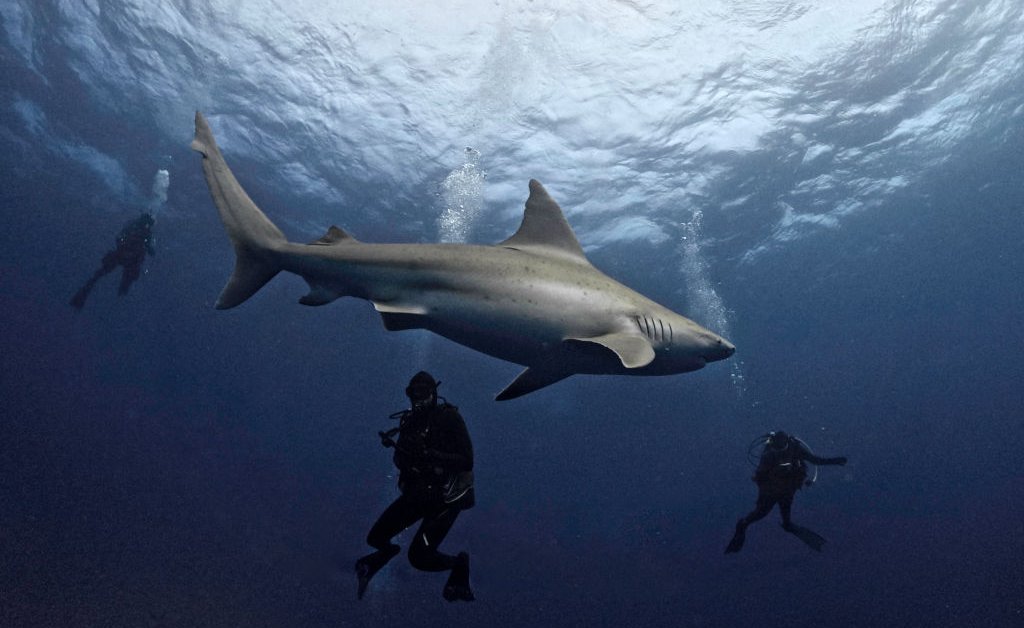Did Jaws Harm Shark Conservation? A Critical Analysis

Welcome to your ultimate source for breaking news, trending updates, and in-depth stories from around the world. Whether it's politics, technology, entertainment, sports, or lifestyle, we bring you real-time updates that keep you informed and ahead of the curve.
Our team works tirelessly to ensure you never miss a moment. From the latest developments in global events to the most talked-about topics on social media, our news platform is designed to deliver accurate and timely information, all in one place.
Stay in the know and join thousands of readers who trust us for reliable, up-to-date content. Explore our expertly curated articles and dive deeper into the stories that matter to you. Visit Best Website now and be part of the conversation. Don't miss out on the headlines that shape our world!
Table of Contents
Did Jaws Harm Shark Conservation? A Critical Analysis
The enduring legacy of Steven Spielberg's blockbuster "Jaws" is undeniable, but did its portrayal of sharks irrevocably damage conservation efforts? This critical analysis delves into the complex relationship between the film's impact and the ongoing struggle to protect these magnificent creatures.
Released in 1975, "Jaws" became a cultural phenomenon, terrifying audiences worldwide with its depiction of a relentless great white shark. While a cinematic masterpiece, the film's impact extended far beyond the silver screen, sparking a debate that continues to this day: did "Jaws" contribute to a decline in shark populations through fear-mongering and the subsequent increase in shark culling?
The "Jaws" Effect: Fear and Misconceptions
The film undoubtedly fueled public fear of sharks. Suddenly, these apex predators were portrayed not as vital components of marine ecosystems, but as mindless killing machines, lurking beneath the waves, ready to strike. This perception, largely inaccurate, led to widespread panic and a dramatic increase in shark hunts. Many coastal communities, fueled by fear and a desire for "safety," actively sought to eliminate sharks, often indiscriminately targeting various species.
This fear-based response, often termed the "Jaws effect," is widely considered to have negatively impacted shark conservation. The widespread killing of sharks, driven by the film's portrayal, significantly contributed to population declines of numerous species, many of which were already facing pressure from overfishing and habitat destruction.
Beyond the Negative: A Catalyst for Awareness?
However, it's crucial to avoid a simplistic narrative. While "Jaws" undeniably fueled negative perceptions, some argue that its popularity paradoxically raised public awareness of sharks. The film's success generated a surge of interest in marine life, albeit initially fear-based, prompting further scientific research and exploration of the ocean's depths.
This increased interest, although initially misguided, eventually paved the way for more nuanced understanding of sharks' ecological importance. Organizations dedicated to shark conservation experienced a rise in membership and funding in the years following the film’s release, albeit indirectly.
The Long Road to Conservation: From Fear to Understanding
The path to effective shark conservation has been a long and challenging one. The initial negative impact of "Jaws" is undeniable, but the decades since its release have witnessed a gradual shift in public perception. Increased scientific understanding, coupled with powerful conservation campaigns, has helped dispel many myths surrounding sharks, highlighting their crucial role in maintaining healthy ocean ecosystems.
- Increased Research: Scientific studies have revealed the vital role sharks play in regulating prey populations and maintaining biodiversity.
- Conservation Efforts: Numerous organizations, such as the Shark Trust and the Pew Charitable Trusts, are working tirelessly to protect sharks through research, advocacy, and policy changes.
- Legislation and Protection: Many countries have introduced legislation to protect endangered shark species and regulate shark fishing practices.
The Ongoing Struggle: Protecting Our Oceans' Apex Predators
Despite these advancements, sharks remain vulnerable. Overfishing, bycatch (unintentional capture), and habitat destruction continue to threaten their survival. The legacy of "Jaws," while complex, serves as a reminder of the powerful influence media can have on shaping public perception and influencing conservation efforts. It underscores the urgent need for continued education, research, and collaborative action to ensure the future of these magnificent creatures.
Call to Action: Learn more about shark conservation and support organizations dedicated to protecting these vital marine animals. Visit the websites of the organizations mentioned above for more information and ways to get involved. The future of sharks depends on our collective action.

Thank you for visiting our website, your trusted source for the latest updates and in-depth coverage on Did Jaws Harm Shark Conservation? A Critical Analysis. We're committed to keeping you informed with timely and accurate information to meet your curiosity and needs.
If you have any questions, suggestions, or feedback, we'd love to hear from you. Your insights are valuable to us and help us improve to serve you better. Feel free to reach out through our contact page.
Don't forget to bookmark our website and check back regularly for the latest headlines and trending topics. See you next time, and thank you for being part of our growing community!
Featured Posts
-
 Death Stranding 2 Kojimas Abandonment Of Subtlety
Jul 01, 2025
Death Stranding 2 Kojimas Abandonment Of Subtlety
Jul 01, 2025 -
 June 30th Brings Two New Monsters To Monster Hunter Rise Sunbreak In Free Title Update 2
Jul 01, 2025
June 30th Brings Two New Monsters To Monster Hunter Rise Sunbreak In Free Title Update 2
Jul 01, 2025 -
 Jason Day Favored 2025 John Deere Classic Betting Odds Preview
Jul 01, 2025
Jason Day Favored 2025 John Deere Classic Betting Odds Preview
Jul 01, 2025 -
 Negative Reviews Prompt Action Capcoms Plan To Fix Monster Hunter Rise Sunbreak
Jul 01, 2025
Negative Reviews Prompt Action Capcoms Plan To Fix Monster Hunter Rise Sunbreak
Jul 01, 2025 -
 Unlocking Wealth A Deep Dive Into An Affordable Warren Buffett Stock
Jul 01, 2025
Unlocking Wealth A Deep Dive Into An Affordable Warren Buffett Stock
Jul 01, 2025
Latest Posts
-
 Topuria Vs Makhachev Cormiers Bold Prediction Shakes Up The Ufc Lightweight Division
Jul 01, 2025
Topuria Vs Makhachev Cormiers Bold Prediction Shakes Up The Ufc Lightweight Division
Jul 01, 2025 -
 Understanding The Demise Of Thailands Powerful Shinawatra Family
Jul 01, 2025
Understanding The Demise Of Thailands Powerful Shinawatra Family
Jul 01, 2025 -
 Ilia Topuria Rising Star Or Makhachevs Next Victim Cormier Offers Insight
Jul 01, 2025
Ilia Topuria Rising Star Or Makhachevs Next Victim Cormier Offers Insight
Jul 01, 2025 -
 Jamal Roberts American Idol Winner Refuses Key To City Amidst Controversy
Jul 01, 2025
Jamal Roberts American Idol Winner Refuses Key To City Amidst Controversy
Jul 01, 2025 -
 Death Stranding 2 On The Beach A Launch Interview With Hideo Kojima
Jul 01, 2025
Death Stranding 2 On The Beach A Launch Interview With Hideo Kojima
Jul 01, 2025
